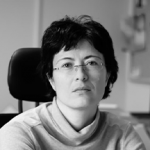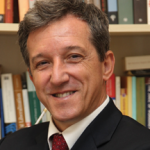The main objective of this research is to analytically investigate and assess the interactions between knowledge driven growth, acquisition of human capital, and the role of strategic public policy for the Turkish economy within the context of a general equilibrium model. The model aims to investigate the public policies towards fostering the development of human capital (such as investments in education and learning) and those at enhancing total factor productivity through investments in physical capital and innovation (such as subsidies to R&D); and study the impact of various public policies on patterns of growth, along with their likely consequences from the points of view of capital accumulation, income distribution, social welfare and economic efficiency for the Turkish economy. With the aid of the model, we seek analytical answers to the following question: for a government constrained with its budgetary requirements, which type of public subsidiziation policies are more conducive for enhancing growth and social welfare: promotion of human capital formation through subsidies to education expenditures, or promotion of new R&D formation through subsidies to R&D investment expenditures? According to the model findings, a single-handed strategy of only subsidizing education expenditures to promote human capital formation falls short of achieving desirable growth performance in the medium to long run. Under the policy of human capital formation promotion, expected growth and welfare results are weak in the medium-to-long run unless increased human capital can upgrade the number of research personnel employed in the R&D development sector. Under these observations, it can be argued that the public policy should be directed to R&D promotion in the medium-to-long run, to complement an education promotion programme to sustain human capital formation.
ملخص
الهدف الرئيسي من هذا البحث هو عمل دراسة تحليلية وتقييم التفاعلات بين النمو المبنى على المعرفة وحيازة رأس المال البشري، ودور السياسة العامة الاستراتيجية للاقتصاد التركي في سياق نموذج التوازن العام. النموذج يهدف إلى التحقيق في السياسات العامة نحو تعزيز تنمية رأس المال البشري (مثل الاستثمارات في التعليم والتعلم) ودور تلك في تعزيز الإنتاجية الإجمالية للمصانع من خلال الاستثمار في رأس المال المادي والابتكار (مثل الإعانات للبحث والتنمية)، ودراسة أثر السياسات العامة المختلفة على أنماط النمو، جنبا إلى جنب مع عواقبها وعلى الأرجح من وجهات نظر الخاصة بتراكم رأس المال، وتوزيع الدخل، والرعاية الاجتماعية والكفاءة الاقتصادية للاقتصاد التركي. نبحث عن إجابات تحليلية على السؤال التالي: أي نوع من السياسات العامة subsidiziation تكون أكثر مواتاة لتعزيز النمو والرفاه الاجتماعي وتعزيز تكوين رأس المال البشري من خلال الإعانات في التعليم النفقات، أو تعزيز تشكيل البحث والتنمية الجديد من خلال إعانات لنفقات الاستثمار للبحث والتنمية وذلك فى وجود حكومة مقيدة مع متطلباتها المتعلقة بالميزانية؟ وفقا لنتائج النموذج،فان وضع استراتيجية واحدة لدعم نفقات التعليم فقط لتعزيز تكوين رأس المال البشري يقصر عن تحقيق أداء النمو المرغوب فيه على المدى المتوسط والبعيد. وفي إطار سياسة تشجيع تشكيل رأس المال البشري، فان نتائج النمو والرفاهية المتوقعة ضعيفة على المدى المتوسط إلى الطويل ما لم يمكن زيادة رأس المال البشري بسبب ترقية عدد من الموظفين العاملين في البحوث قطاع التنمية R & D. في ظل هذه الملاحظات، يمكن القول أنه ينبغي توجيه السياسة العامة للبحث والتنمية في المدى المتوسط إلى الطويل، لاستكمال برنامج تعزيز التعليم للحفاظ على تكوين رأس المال البشري.

Research Fellows
Ebru Voyvoda
Professor, Department of Economics, Middle East Technical...

Research Fellows
Erinç Yeldan
Professor of Economics and Dean, Kadir Has...


